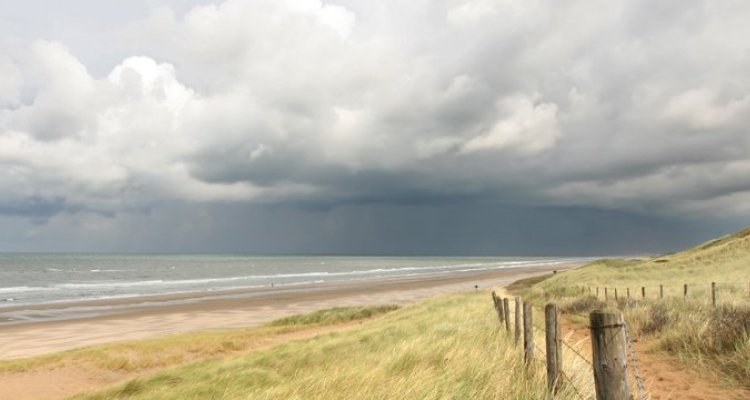
Air Quality and Atmospheric Chemistry (MAQ)
The Meteorology and Air Quality department (MAQ) aims to contribute to the further understanding of atmospheric processes and their relevance for weather, air quality and climate. The natural focus of MAQ research is on atmospheric boundary layers over land and on the atmospheric aspects of the connected energy, water, carbon and aerosol budgets.
More about this thesis track
Thesis research in the Meteorology and Air Quality group focuses on global and continental scale by studying the carbon balance, attribution, composition of aerosols and influence on the radiation balance, large eddy simulation of CO2 and H2O exchange with the surface, influence of turbulence on atmospheric chemistry, and use of satellite data to infer emission patterns. Local scale focuses are on dew formation, leaf wetness, temperatures in shallow pools related to malaria, use of eddy covariance and scintillometry to obtain fluxes of H2O and heat, modelling of dispersion and deposition of NO2, PM10, odorous compounds and NH3, and influence of vegetation along highways on pollutants from traffic.
Environmental scientists widely use observations of atmospheric composition and exchange fluxes between the land surface and the atmosphere, as well as numerical models to study dispersion, chemical conversion and deposition for practical purposes such as environmental policy, inventory of air quality, and scenario analysis. Scientifically, these same models are used to obtain more insight into processes like deposition, aerosol and ozone formation. Designing and improving such models is a key activity of the Meteorology and Air Quality group. This is not restricted to models for local predictions, but includes modelling dispersion up to global scales.
Scales
The education programme of the Meteorology and Air Quality group covers processes and models geared towards large scales (like weather systems, atmospheric dynamics and climate science) but also towards local scales (like atmosphere-vegetation-soil interactions, urban air quality models, and health effects of pollutants). Whether your career will take you to the large scales or the local scales, or even beyond atmospheric topics, the basic knowledge and practical skills you obtain in our courses are a solid base for your future career as environmental scientist.
Students can learn more about the education and research programme of the Meteorology and Air Quality (MAQ) group by visiting the website.
Courses
The following courses are part of the MSc programme Environmental Sciences when selecting the thesis track Air Quality and Atmospheric Chemistry. Next to these thesis specific courses, you will follow courses from the common part and electives as summarised in the programme outline. For more information visit the study handbook or contact the study adviser.
Thesis track-related subjects
Compulsory
| Subject | Code |
|---|---|
| One e-learning is compulsory in order to work safely at Wageningen University (0 ECTS): | |
| Laboratory Safety | ZSS06100 |
| Atmospheric Composition and Air Quality | MAQ34806 |
| Meteorology and Climate | MAQ21806 |
| MSc Internship Air Quality and Atmospheric Chemistry | MAQ71224 |
| MSc Thesis Air Quality and Atmospheric Chemistry | MAQ81336 |
Compulsory unless your study adviser indicates differently
| Subject | Code |
|---|---|
| Chemical Process in Soil, Water, Atmosphere | SOC22306 |
In order to prepare well for your thesis track, you can additionally choose supporting courses. These courses focus, for example, on quantitative and data sciences or laboratory skills. You can find the exact list in the study handbook at the section “Restricted Optionals (2) in Common part”.
This course overview is based on the Wageningen University study handbook, where you can find a more detailed course and programme description. The study handbook is guiding in case of any discrepancy.
Below you can see an example how your schedule can look like when following this thesis track: